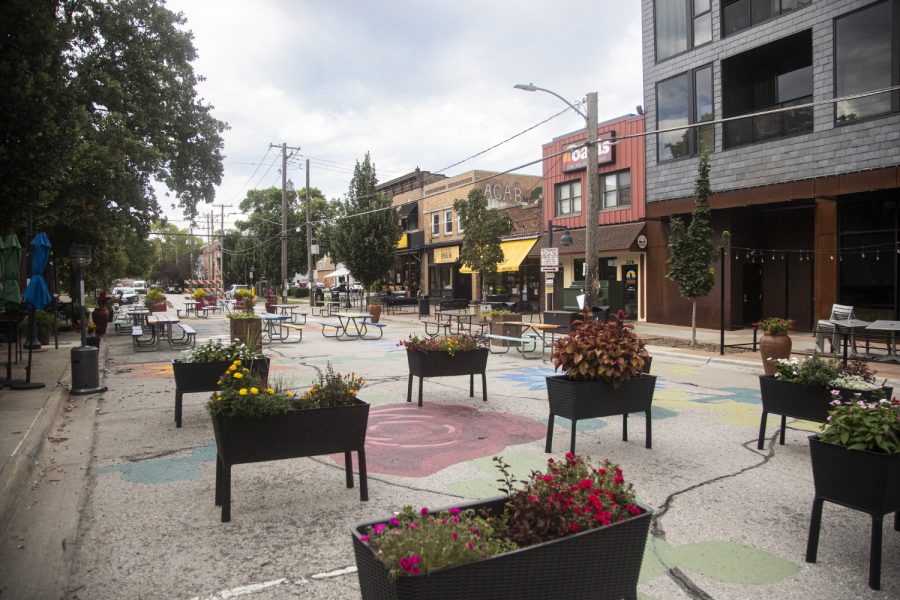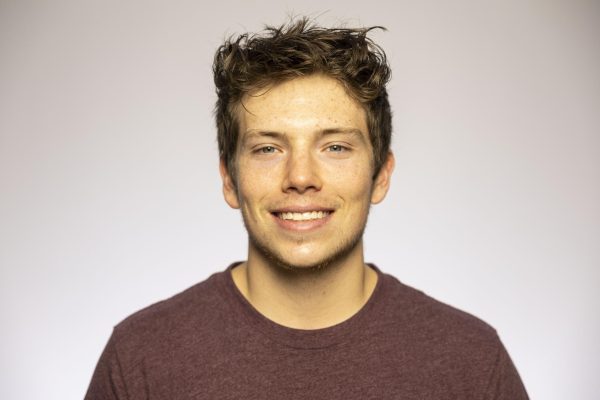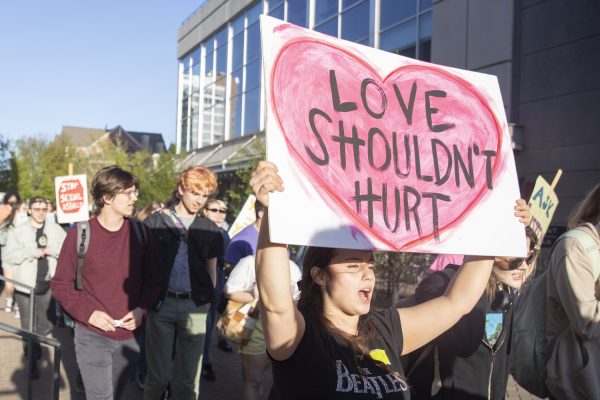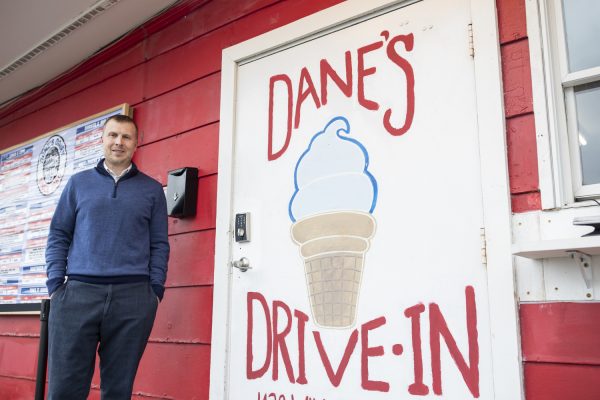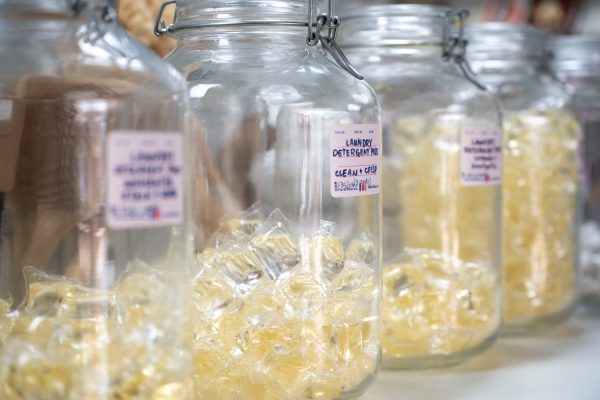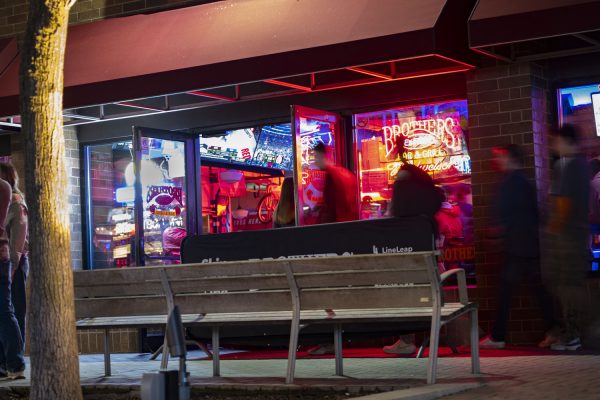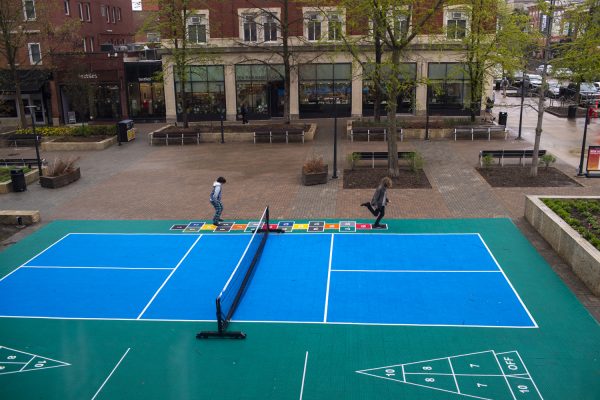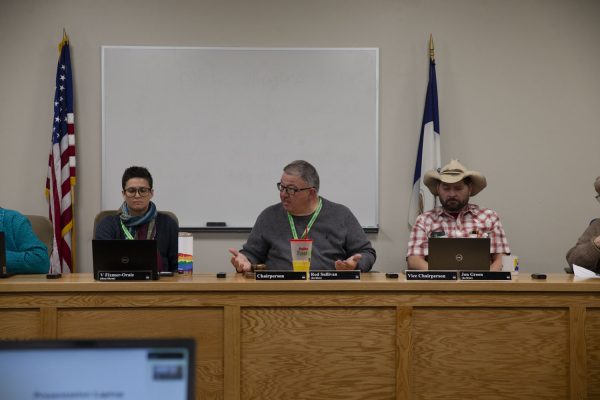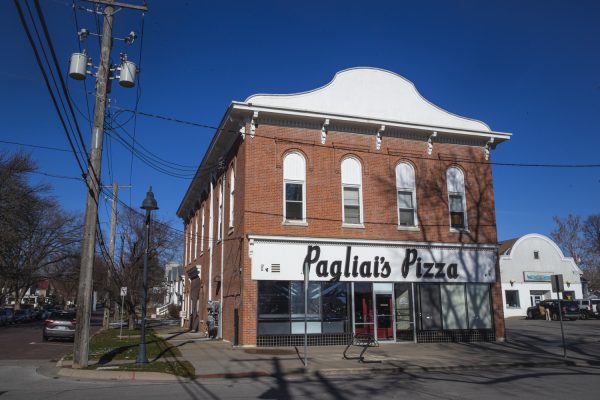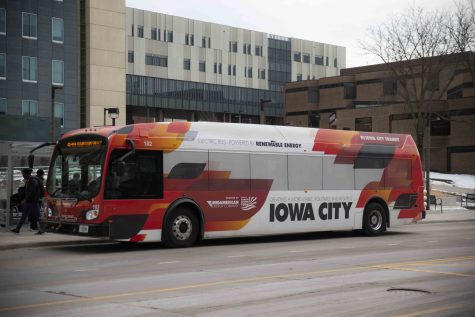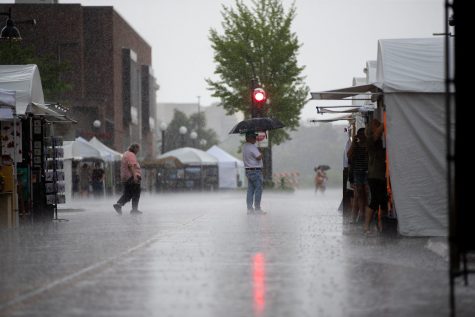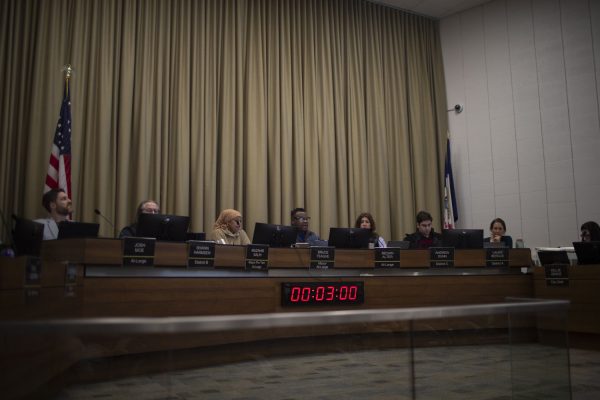Iowa City expands free Wi-Fi to Northside
The City of Iowa City is partnering with ImOn Communications to provide wireless internet to the Northside. The network will cover the outdoor eating area in the block between Market Street and the alley north of Market Street.
Linn Street is seen in Iowa City on Sunday, Sept. 19, 2022.
September 20, 2022
Iowa City residents now have access to free Wi-Fi in most of the city’s public areas — including the historic Northside.
City officials announced the internet connection expansion on Sept. 8, which will cover the outdoor eating area in the block between Market Street and the alley north of Market.
ImOn also offers free community Wi-Fi in the Pedestrian Mall, Chauncey Swan Park and its adjacent parking ramp, and Riverfront Crossings Park.
Based out of Cedar Rapids, ImOn Communications offers broadband internet, TV, and phone services to residents and businesses in Eastern Iowa.
ImOn Communications Representative Lisa Rhatigan said offering free Wi- Fi is one way the company likes to give back to communities where their services are provided.
Rhatigan said expanding to North Linn Street made sense because many restaurants and businesses are in the area.
“We chose North Linn because that’s where they block off the street, and people gather at the restaurants and the shops and everything,” she said. “It just seems like a popular area that might benefit from having access to Wi-Fi.”
Rhatigan said the process to expand ImOn’s connection in the city started this summer.
“What we were doing was looking at where was the best place because to put up a piece of our equipment, that is that network access point which sends out the signal,” she said. “And so, we needed to find the best place and then get agreement from the building owner to put that equipment on their building.”
Restaurants such as Goosetown Cafe, Hamburg Inn No. 2, Iowa City Oasis Falafel, and The Webster are all located on North Linn Street and offer outdoor dining to guests.
RELATED: ‘The Parking Spaces’ provides interactive audio art experience in downtown Iowa City
City of Iowa City Communications Coordinator Shannon McMahon said more people have visited North Linn Street after the city blocked a portion of it off for outdoor dining in 2020.
“That brought more people to the area and then they added live entertainment,” she said. “Numbers have sustained, and it seems like the area’s still pretty busy.”
Rhatigan said the need for public access to the internet was emphasized during the pandemic and with recent unprecedented weather events.
“One thing that we learned during the pandemic was that it’s a good idea to have public access to the internet in case of emergencies like a pandemic or a derecho — which wasn’t quite as bad in Iowa City but was really bad in Cedar Rapids,” she said. “A lot of people didn’t have power for up to two weeks, and so our public Wi-Fi areas still were a place where you could go [to] access the internet.”
Residents eating at the blocked-off outdoor dining area on North Linn Street had mixed feelings about new Wi-Fi accessibility.
Amel Ali, a resident of Iowa City, said on Sept. 18 she likes the accessibility aspect of the city offering free Wi-Fi but wouldn’t use it because of privacy issues.
“It looks like it seems like a really great idea, but the student population is probably not going to be aware of how much access they’re giving it to literally anyone,” Ali said. “I would strongly suggest that university students and anyone who cares about their digital security to not use this free Wi-Fi.”
Jacob Payne, a University of Iowa graduate student, agreed privacy is a concern but said he still likes the city’s efforts.
“[Privacy] is definitely a potential concern, but of course you’re sitting out in a public space, and so it’s not that different from just being in a place,” he said. “I think it’s good to provide that as a resource for people and encourage folks to come and use public spaces.”
Kufre Ituk contributed to this report.



